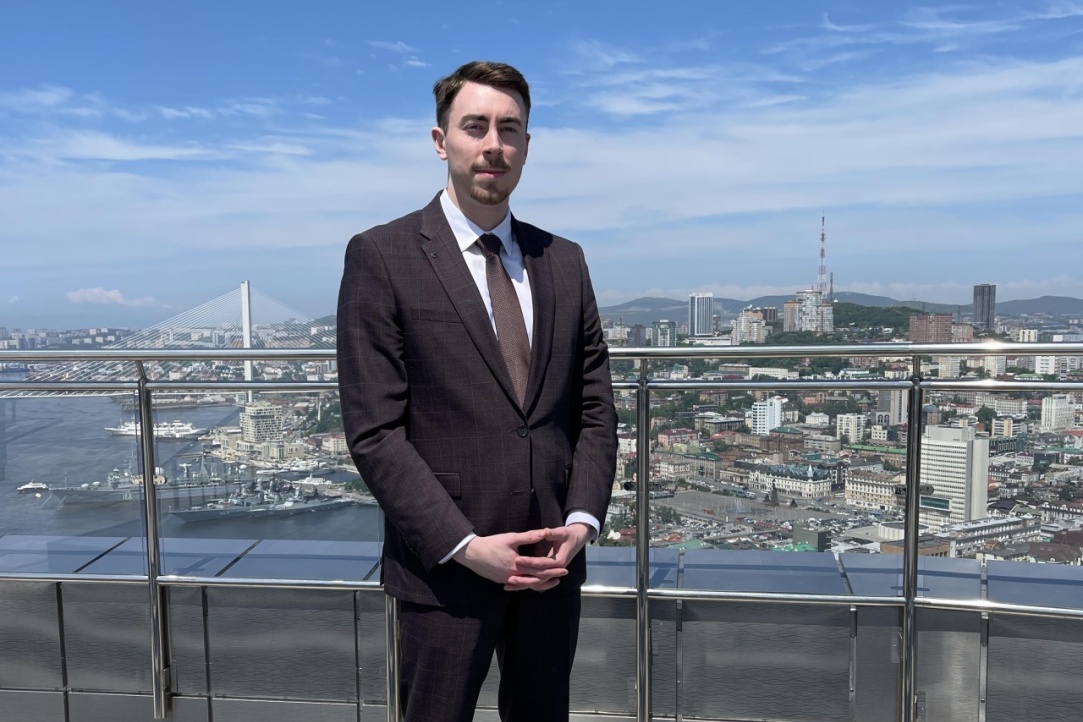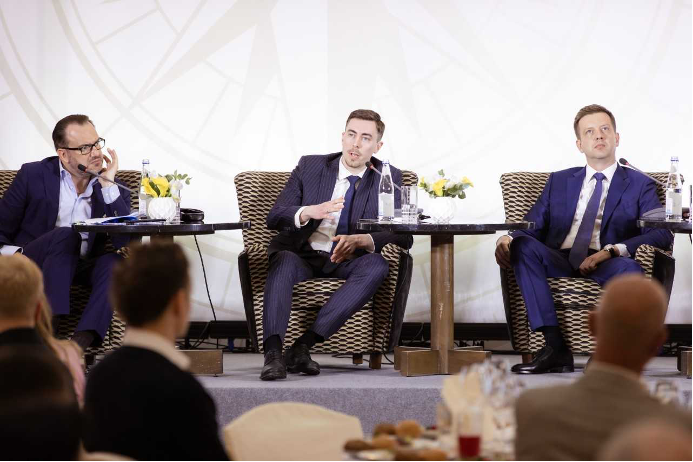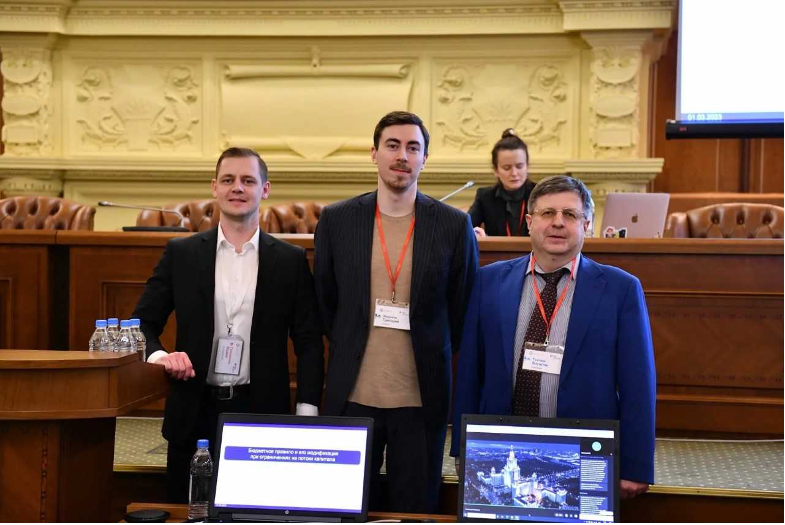“Having the Right People Around is Key to Success as Early Career Scientist”

Grigory Zhirnov earned his master’s from ICEF in 2020 and is currently pursuing PhD studies. Grigory combines his research at HSE Laboratory for Macro-Structural Modeling of the Russian Economy with the job as chief economist at VTB Capital Asset Management. In this interview, Grigory talks about creating a match between job and academic studies, why early career scientists find HSE a great place to be, and what scientific explorations are maintained in banks.
About doing a master’s at ICEF
I was looking to do a master’s that would give me lots of hands-on knowledge – the one with a strong focus on Econometrics, Financial Economics, complex modeling. By the time I graduated from HSE Faculty of Economics Sciences, ICEF’s master’s degree seemed one of the best choices available in the country. I chose it also because I knew what to expect – I myself was an HSE student at the time – I’d be able to communicate with my professors and I also liked the idea of studying in English.
To say that doing my master’s wasn’t easy would be putting it mildly. But it’s definitely worth it. The knowledge I received has been a huge help in my academic work and on the business side. Now when hiring for my bank’s team, I can see immediately if the candidate has good analytical skills or whether they can build sophisticated models and present them in a way understandable to all.

I didn’t apply for PhD right after completing my master’s, even though it had benn my intent to do a more in-depth research. I applied two years after graduating, with ample experience in the industry. My current job involves macroeconomic research and I really enjoy doing it. For me it is a way to contribute, even though to a modest extent, to public welfare. Why not combine applied research with academic studies for an increased effect? By the way, my friends and colleagues tell me I’m good at making complex ideas easy to understand. I find teaching a rewarding occupation.
About doing research
I sometimes think my interest in macroeconomics is rooted in the perpetual discussion me and my father maintain on economic topics. I first developed this interest when I was a high school student and it grew stronger when I started university. Economics is what I now explore academically. The topic I chose for my bachelor’s thesis was fiscal rule – an absolutely engrossing subject that I became greatly interested in also thanks to my supervisor Nikolai Pilnik. I’m very glad he proposed it to me. I go on with this topic in my current PhD research, and I also do a lot of research into monetary policy and financial markets as part of my job. All this only fuels my discussions with the father.
HSE has had a stimulating action on my research. Here, I can get constructive criticism and talk to people who share my views. Having the right people around is key to success as early career scientist. It’s important to have colleagues, mentors, research supervisor and professors to discuss with and get feedback from. This has been the number one thing for me and this is why I chose this PhD programme.
Our most influential economic thinkers, many of them have in one way or the other been connected with HSE
As for the learning resources – library, research facilities and related infrastructure – these are beyond praise. HSE has everything for a smooth and successful start in academia. HSE is absolutely the best choice for people interested in economic research.
About joining Bank of Russia’s workshop
I recently did a talk at the joint workshop of the Bank of Russia, NES and Bank of Russia’s specialized department in HSE. It was called “Macroeconomic Stability Aspects: How budget policies affects fiscal priorities”, and my talk there involved presenting the paper written in co-authorship with Vadim Grishchenko of HSE and Vasily Tkachev of MGIMO – The Fiscal Rule and Its Modification in Response to Capital Restrictions. It explores what fiscal rules might look like in conditions of limited foreign asset transactions. One conclusion we discuss is that the current fiscal rules can be completely ruble-based: The surplus in the National Wealth Fund from the oil and gas sales can, and should, be converted to rubles, and we provide enough evidence of the fiscal rules actually meeting all the basic criteria if maintained in roubles. Fiscal rule is one of the main tools towards macroeconomic stability, and it’s only natural that regulators welcome more research in this field.
About his experience in investing
My job involves making forecasts of such major macroeconomic indicators as GDP, inflation, interest rates, balance of payments, exchange rates, etc. It also involves intensive studies into the Russian economy and the developing economies for our internal and external clients – portfolio managers, investment advisers, institutional investors, retail investors – and it involves me presenting at conferences and client meetings where I talk about the situation in the economy as a whole. This is what macroeconomists generally do, with certain variations, at banks. Our bank is focused more on investment strategies: we identify investment objects that are likely to sell or buy well in response to certain occurrences, contexts or forecasts. But it doesn’t mean we don’t do any other studies as new topics and tasks arise.

For example, last year, we explored the television coverage of the Bank of Russia’s decisions on base rate. Using common methodologies, we tried to analyze some of the TV news reports to conclude that many of them mostly mention exchange rate, lending and financial stability and talk very little about inflation, even though it is inflation and inflation forecast that are core to the decision-making as to base rate.
We believe that once inflation is given greater focus in the media, people can be expected to have higher financial awareness levels and maybe have more adequate inflation expectations – to the advantage of the county’s monetary policy
So, our next step in this big study is to go deeper and we might one day develop our findings into a decent paper.
When you are working in the industry, you spend nearly all your time working and it can, of course, be very difficult to squeeze time for academic research. But I think it’s absolutely necessary as a way to increase professional development and to contribute to the evolution of the economic thought in your country. To promote my line of research, I created a Telegram channel, where I post brief comments on the current macro situation, observations, projections, and brief extracts from useful sources. After Bloomberg pulled out of Russia, it became very common for economists to start Telegram channels as a way to put their expertise into the public domain, fostering discussion among banks and to some extent even shaping their financial agendas.